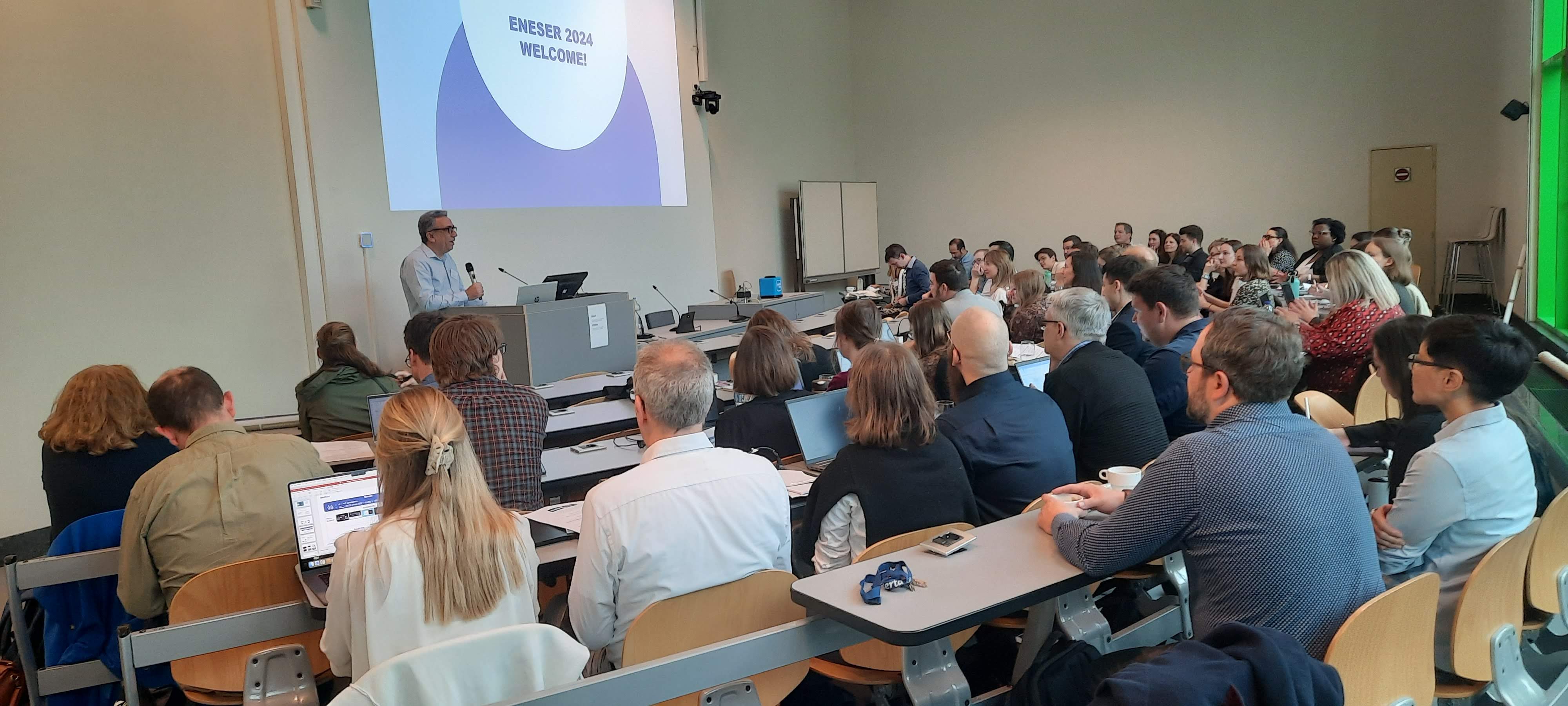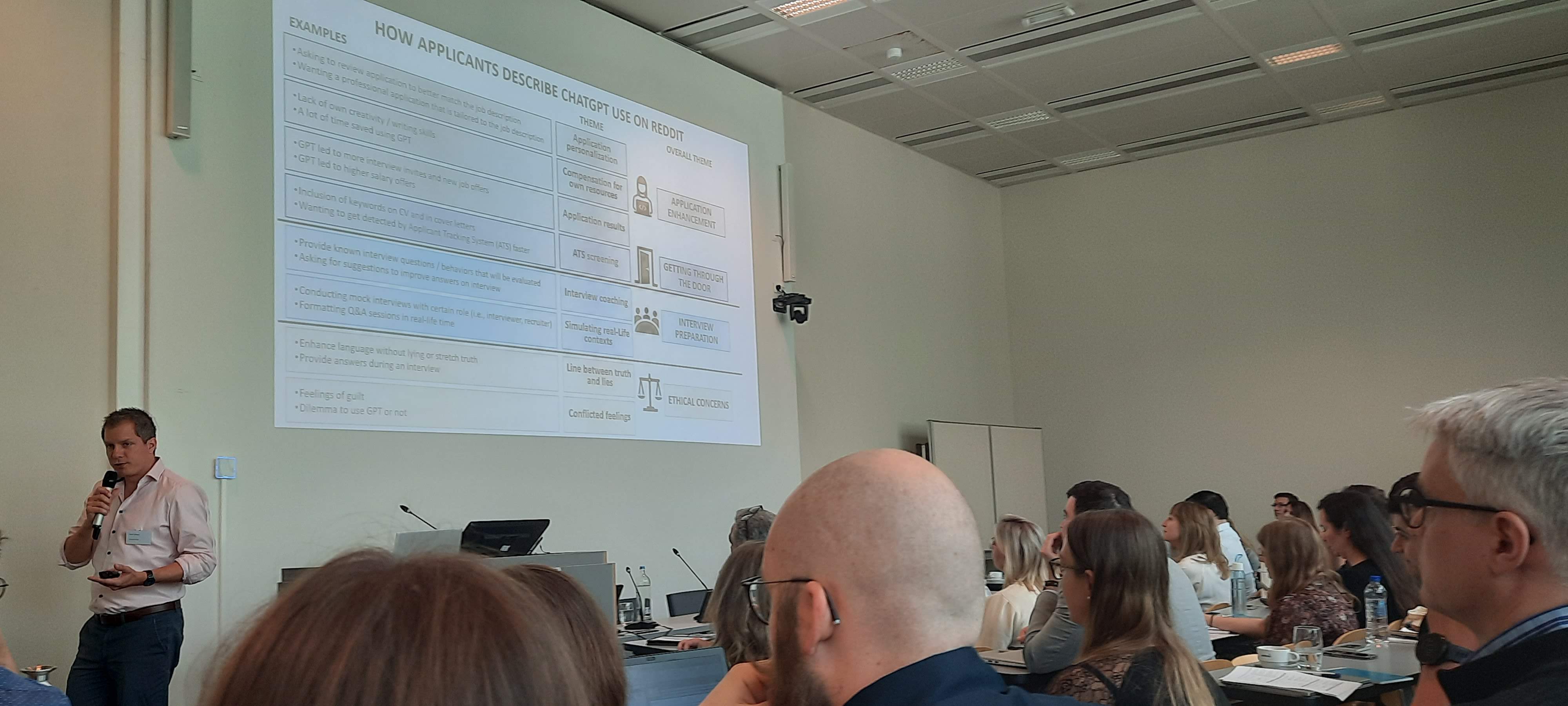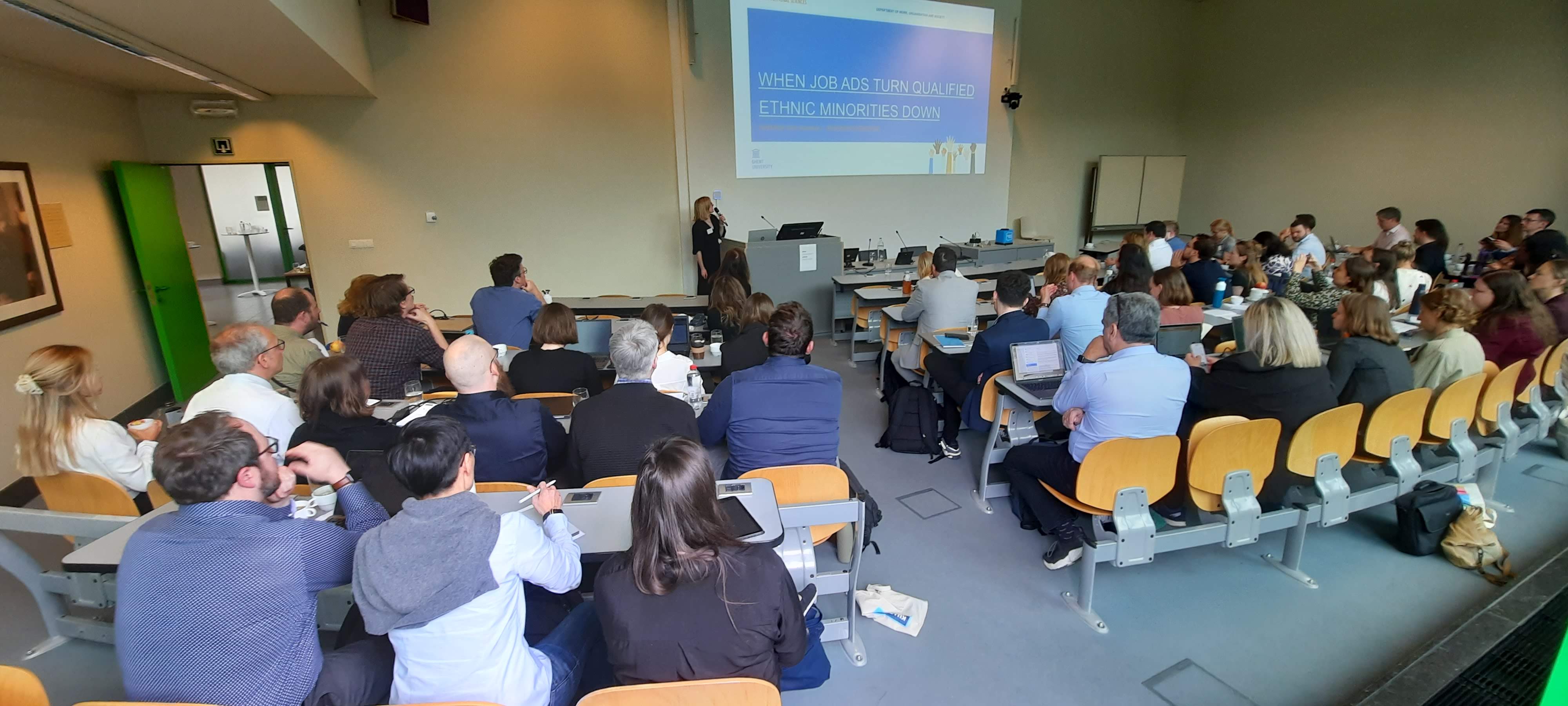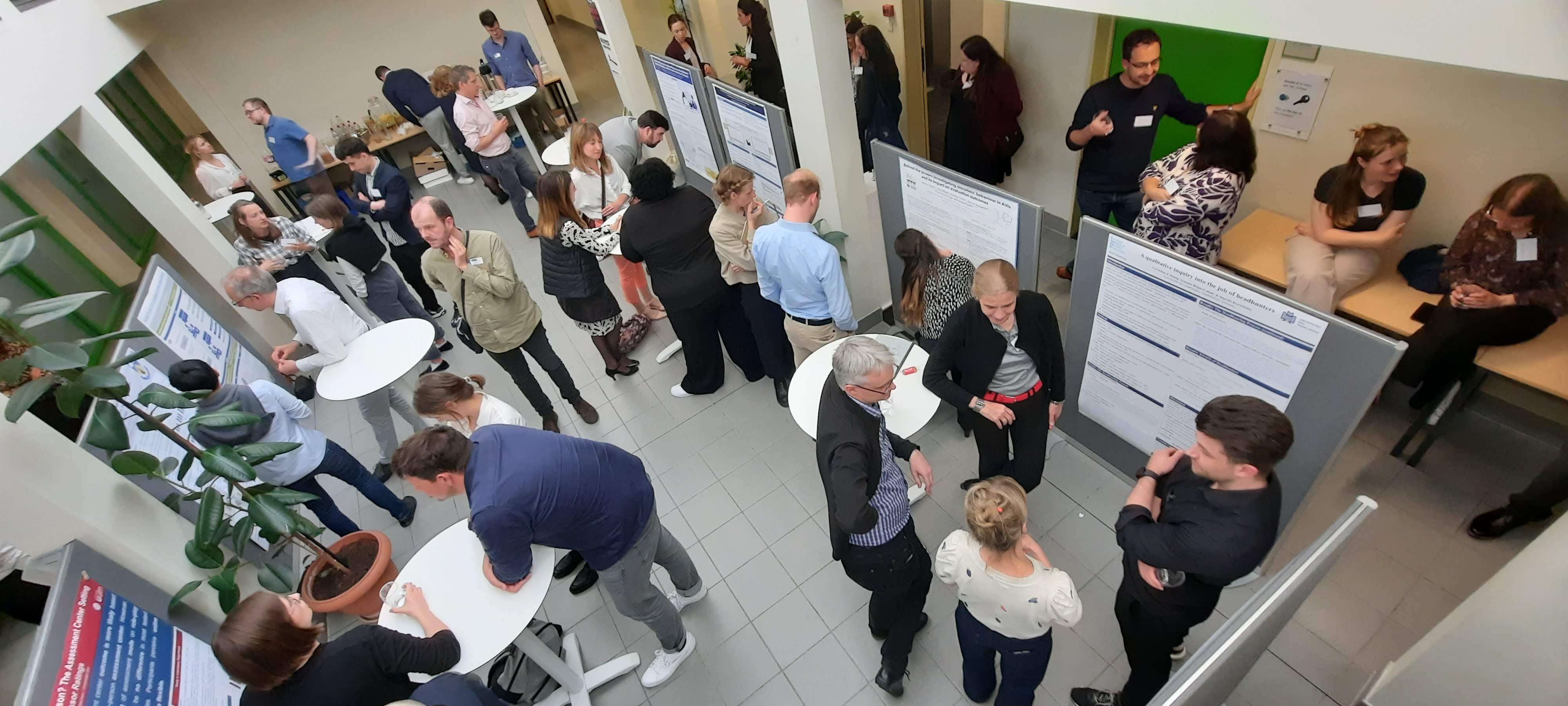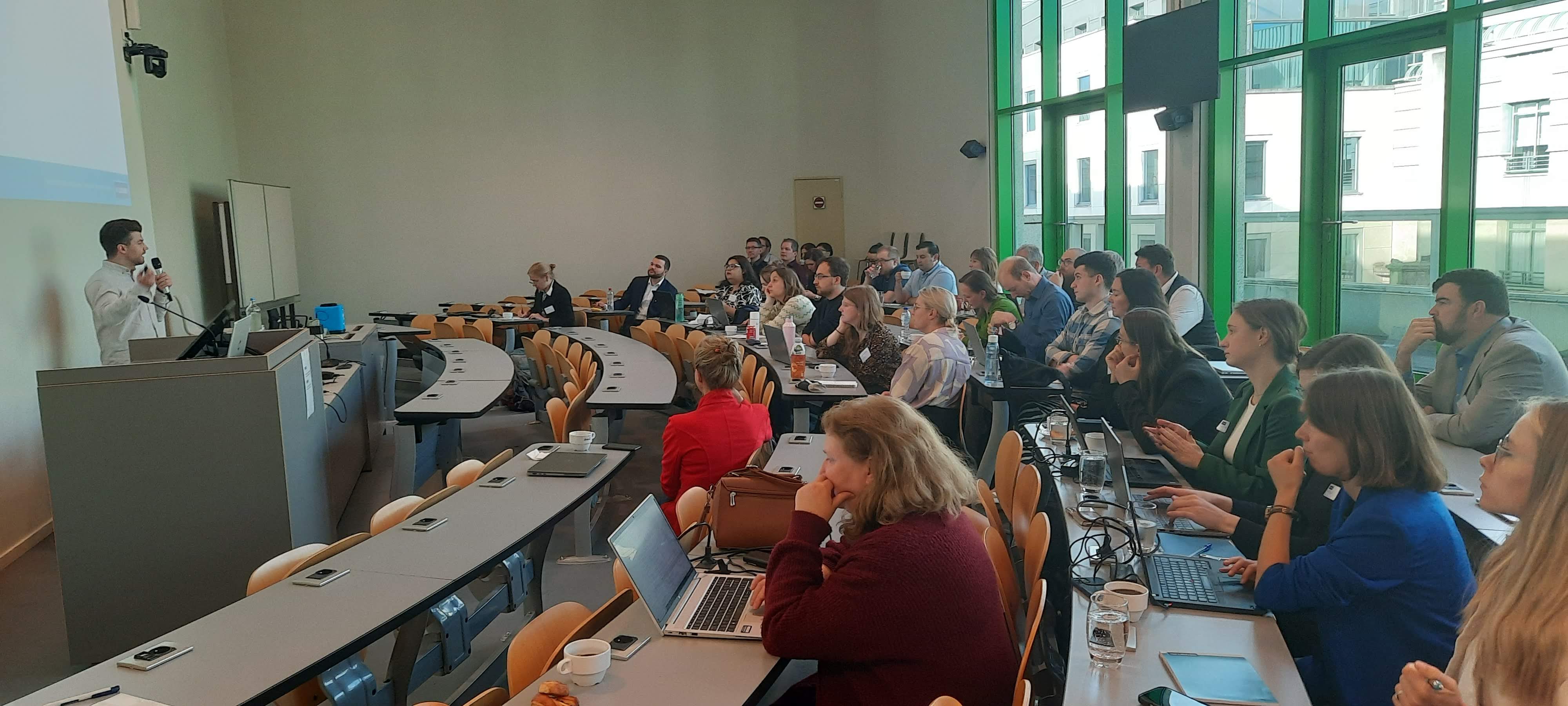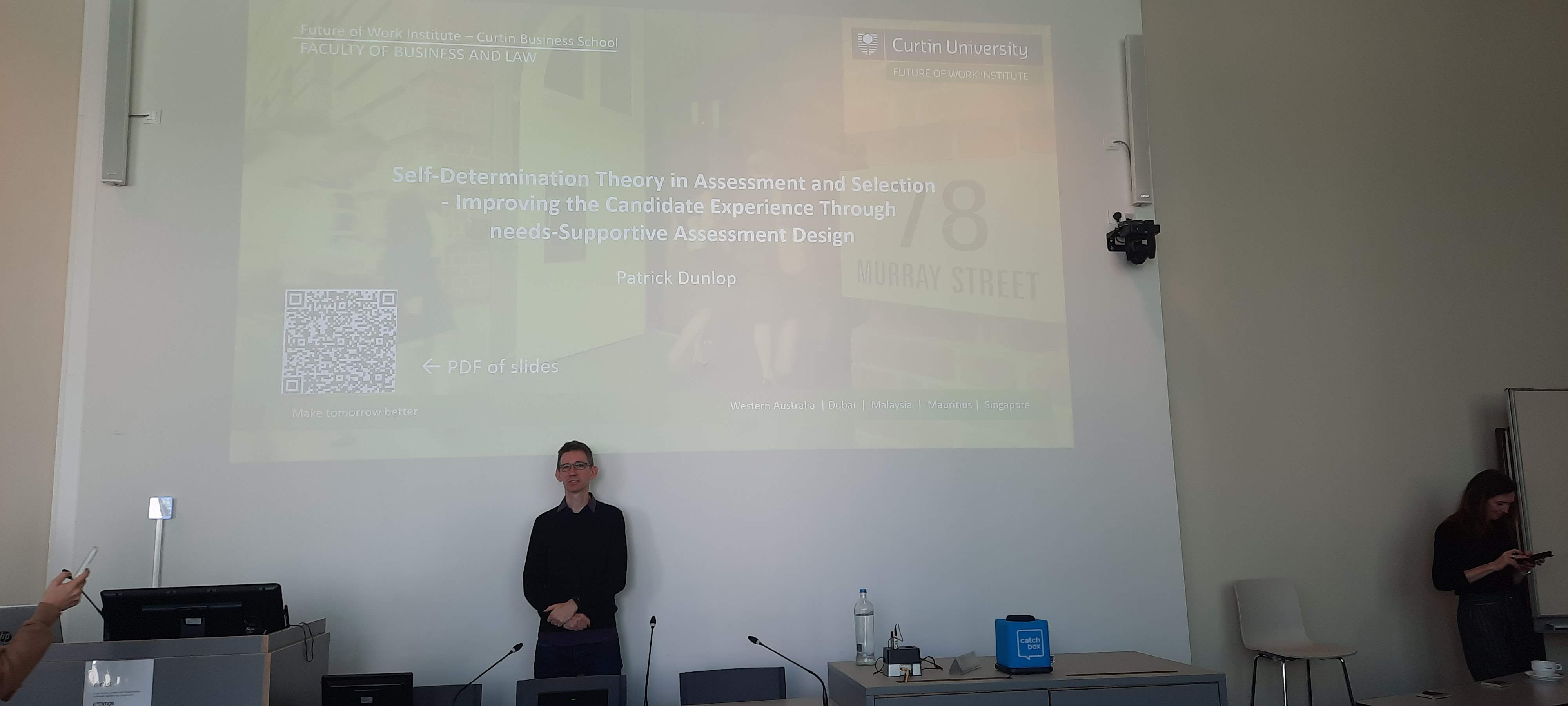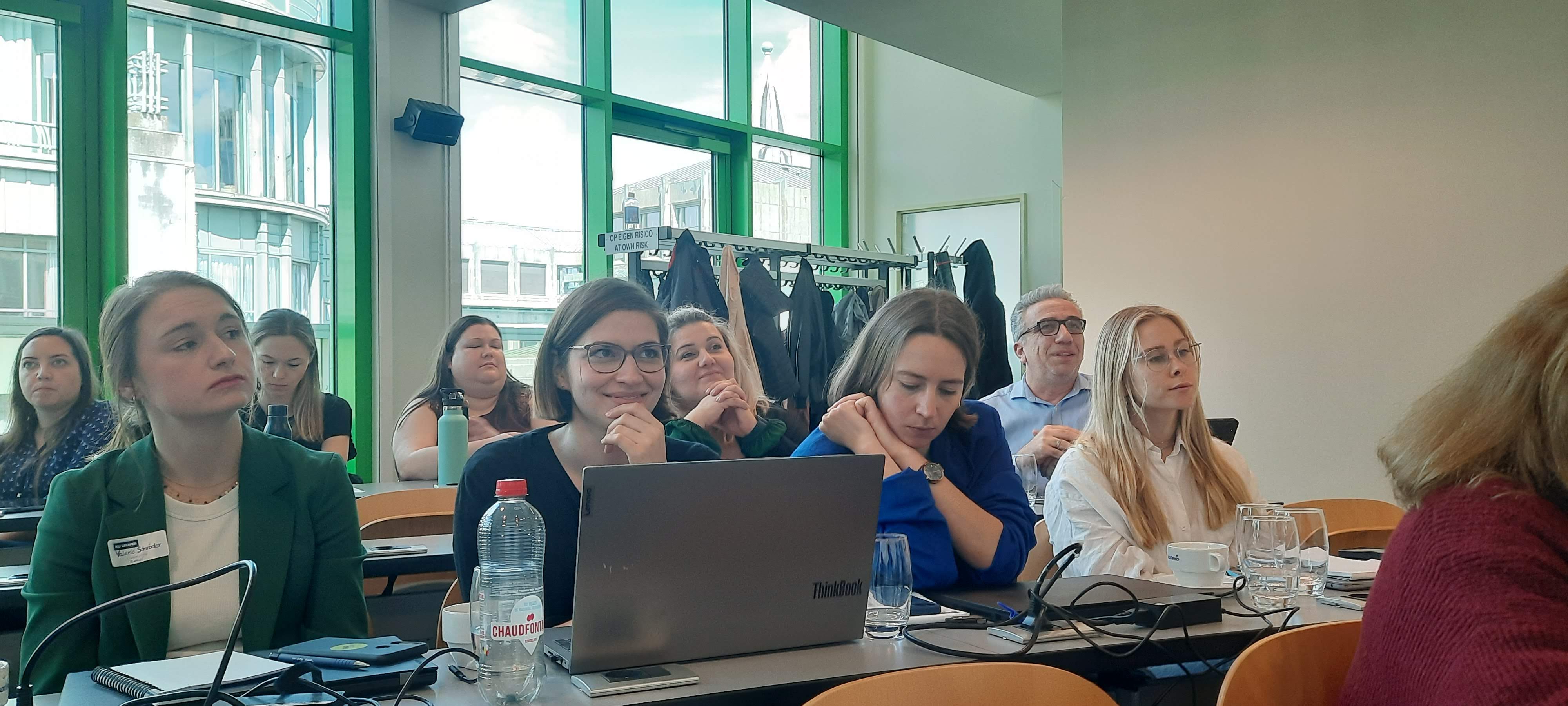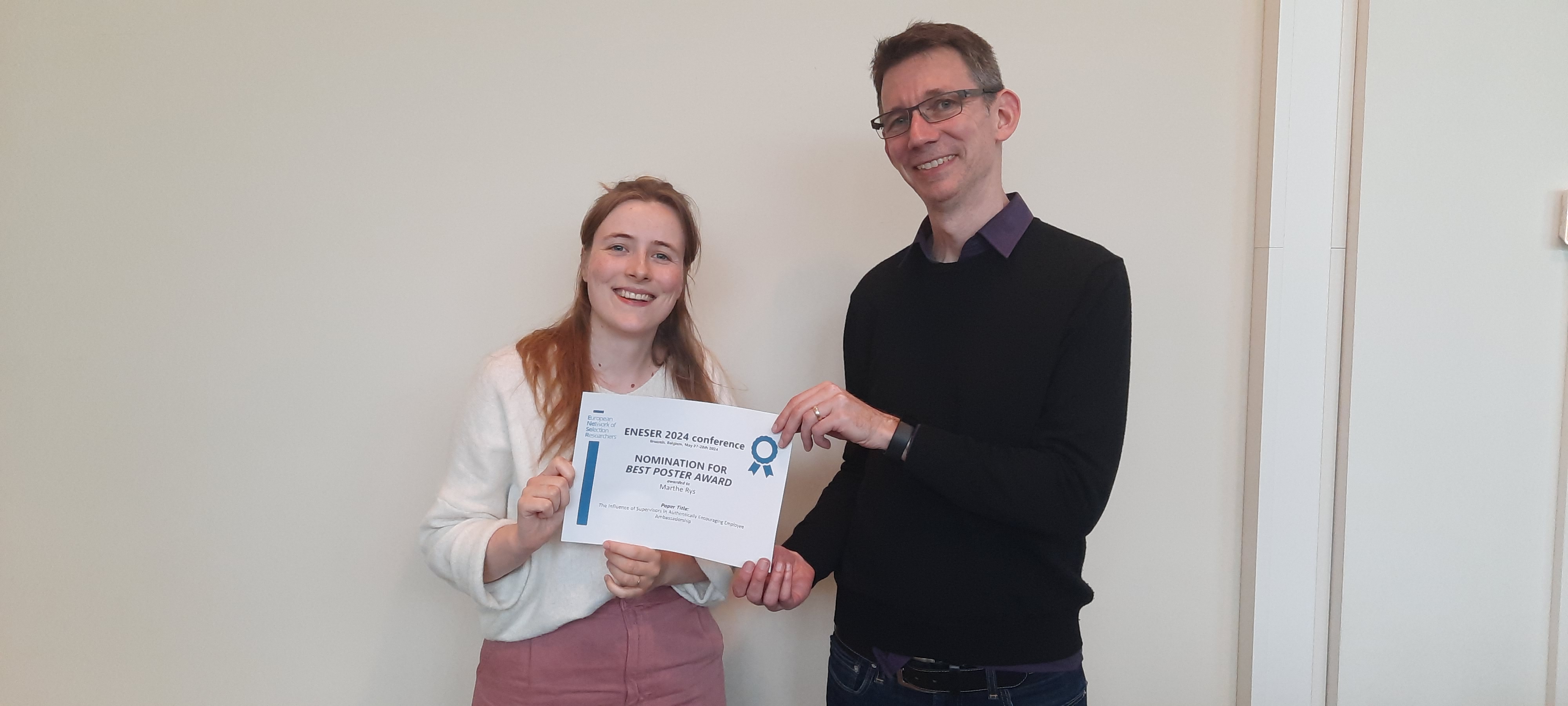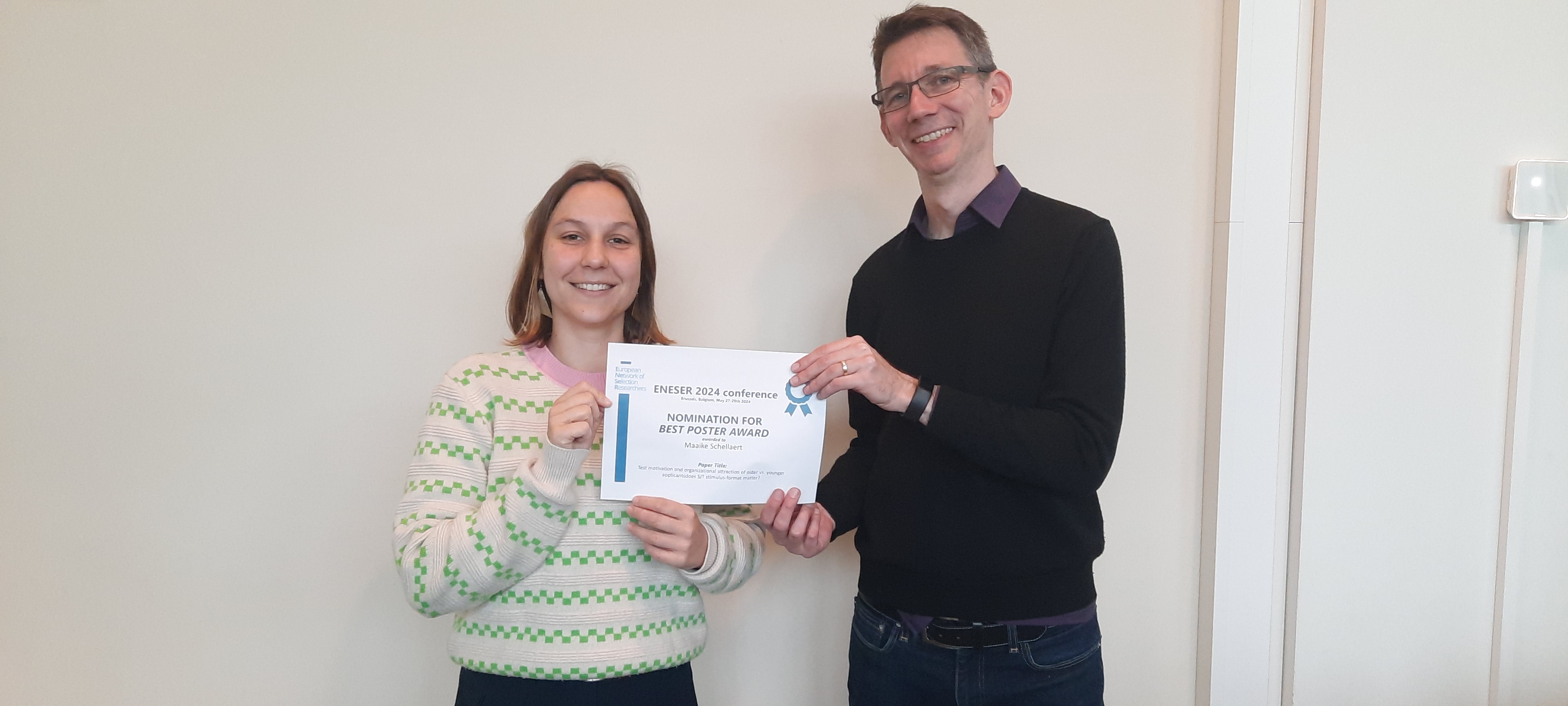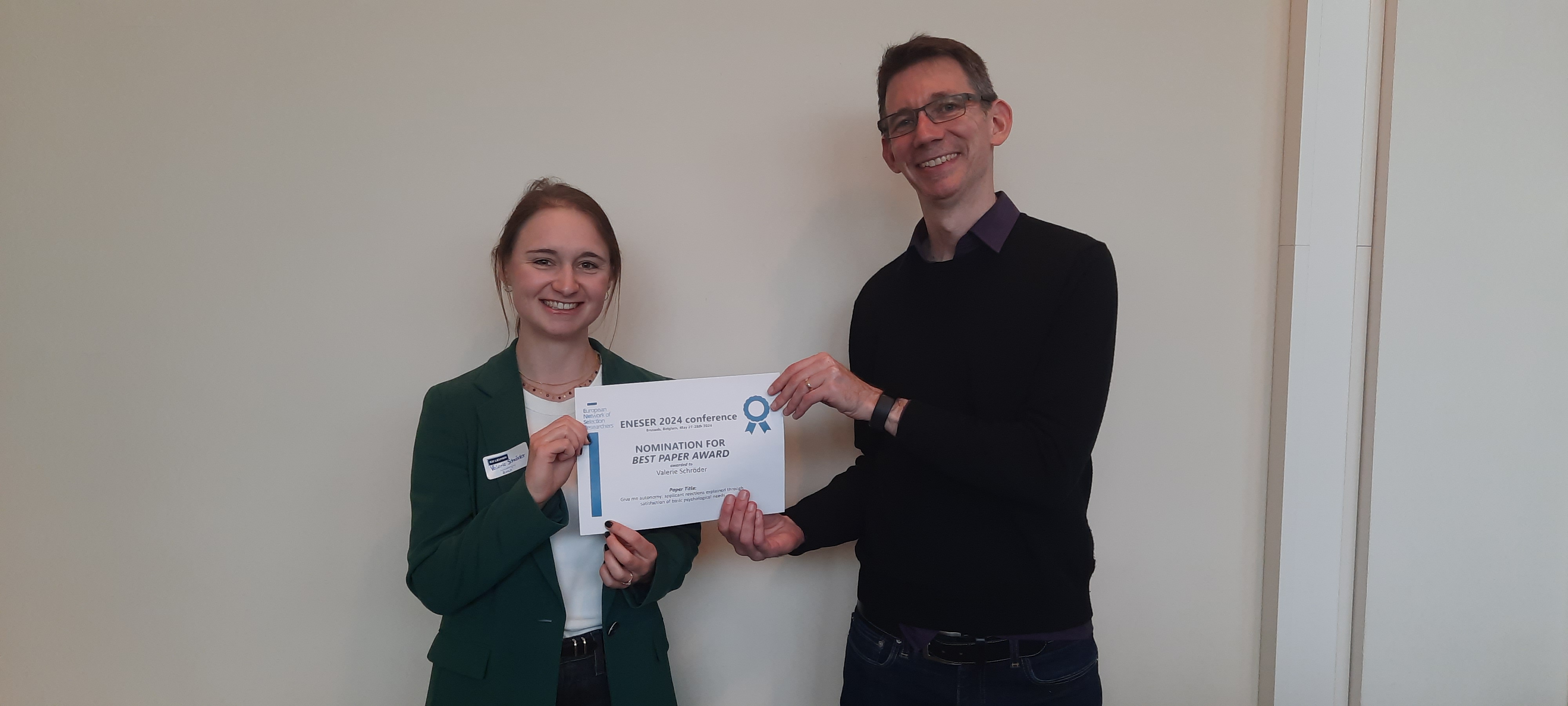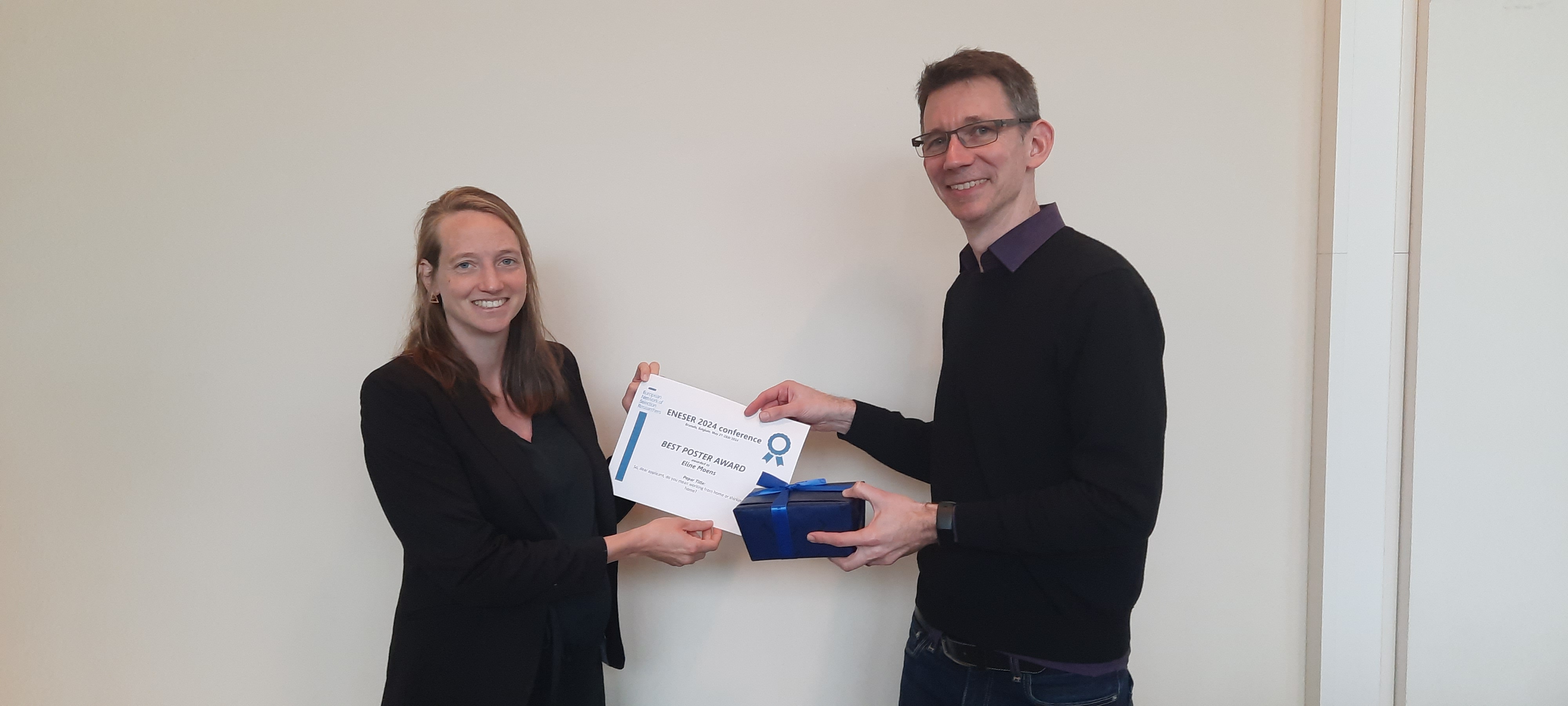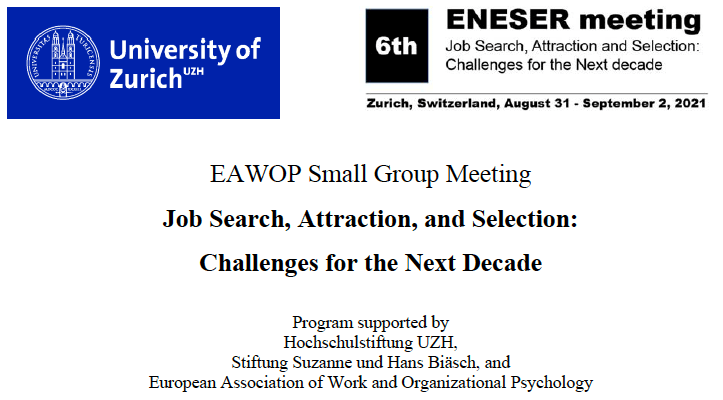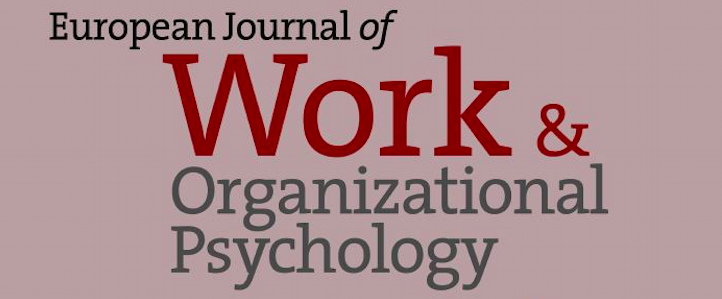
Artificial Intelligence for Recruitment and Selection: Opportunities, Challenges, and Human Impact
LUMSA University, Rome, Italy July 17-18, 2026
Conference Theme and Scope
Artificial Intelligence (AI) has moved from being a futuristic concept to becoming a pervasive force in contemporary recruitment and selection. Automated screening algorithms, AI-powered chatbots, video-interview analytics, gamified assessments, and generative AI for recruitment marketing are rapidly reshaping the landscape of talent acquisition. Organizations increasingly rely on AI tools to improve efficiency, reduce bias, and enhance candidate experience. Yet, these advances bring with them a complex set of human, motivational, and ethical challenges that the field of selection research must now address. The integration of AI into personnel selection fundamentally changes how candidates and recruiters interact, how decisions are made, and how fairness, transparency, and trust are perceived. While AI promises to make hiring more objective and data-driven, it simultaneously raises questions about algorithmic bias, opacity, and accountability. Moreover, AI alters the very nature of motivation and engagement in both applicants and recruiters: candidates are no longer interacting solely with human assessors but with algorithmic systems that may lack empathy, contextual understanding, and flexibility.
From a motivational psychology perspective, these changes call for new theoretical and empirical insights. How does interacting with AI influence an applicant’s sense of competence, autonomy, and relatedness? Does the perception of being evaluated by an algorithm affect motivation, impression management, or faking behaviors? Can AI-driven assessments be designed to foster engagement and authenticity rather than anxiety and alienation? Similarly, for recruiters and HR professionals, the increasing reliance on AI might alter their sense of professional identity, autonomy, and responsibility in decision-making. At the organizational level, AI has the potential to transform employer branding and attraction strategies. Generative AI tools are being used to create personalized job advertisements and simulate realistic job previews. Data-driven analytics can help organizations identify and target underrepresented talent pools. However, these same tools may also risk depersonalizing the recruitment process or reinforcing systemic inequalities if not critically monitored and validated. Furthermore, the ethical and societal implications of AI in selection are far-reaching. Scholars and practitioners alike are confronted with questions regarding the ownership of data, the transparency of algorithms, and the potential for discrimination in predictive hiring models. As policymakers move toward regulating AI applications in employment contexts (e.g., the EU AI Act), researchers have an important role in providing evidence-based insights that can guide ethical and effective implementation.
The ENESER 2026 Conference aims to advance our understanding of how AI is transforming recruitment and selection.
We invite theoretical, empirical, and methodological contributions that examine the human–AI interface through the lenses of motivation, fairness, ethics, and innovation.
Specifically, we encourage submissions that explore—but are not limited to—the following topics:
- Applicants’ and recruiters’ motivational and emotional reactions to AI-based recruitment and selection systems.
- The effects of algorithmic decision-making on perceived fairness, trust, and organizational attractiveness.
- The role of transparency, explainability, and human oversight in shaping positive candidate and recruiter experiences.
- Human–AI collaboration in personnel selection: how to integrate automation with human judgment.
- Game-based, conversational, and adaptive AI assessments and their implications for engagement, validity, and candidate experience.
- Bias mitigation and diversity enhancement through responsible AI design.
- Ethical, legal, and cross-cultural perspectives on the use of AI in recruitment and assessment.
- The application of motivational theories (e.g., Self-Determination Theory, Expectancy Theory, Goal Setting) to understand behavior in AI-mediated selection contexts.
- The impact of AI on recruiters’ professional identity, job satisfaction, and decision accountability.
- The use of generative AI in employer branding, candidate communication, and job advertisements.
- Methodological innovations for studying AI–human interaction in personnel selection, including experimental designs, simulations, and qualitative approaches.
Ultimately, the conference seeks to stimulate dialogue on how to design AI systems that augment human potential, rather than replace it, and how to ensure that technological progress aligns with psychological well-being, ethical standards, and social inclusion.
Format of the meeting
Next July, 17-18 we will have two full days of presentations and discussions of approximately 25 papers. This format will allow participants to have ample discussions about their research. There will also be a lot of opportunities for networking and building collaborative project ideas. The event will end at the latest by 6 pm. You will have the opportunity to join a pre-conference dinner on July 16th (more information will follow), we will start the conference with a keynote by Bettina Kubicek from University of Graz, Austria. She will talk about “Aversion or appreciation? Artificial intelligence in personnel selection”.
Location
LUMSA University of Rome, ITALY. Piazza delle Vaschette, ROMA, ITALY.
Conference fees (including 2 lunches and coffee breaks during the conference days)
Regular: € 150 (before April, 30th) € 250 (after April, 30th)
PhD students: € 100 (before April, 30th) € 150 (after April, 30th)
Submission of abstracts
Participants are invited to submit abstracts (up to 1000 words) by January 26, 2026 to eneser2026@unich.it
Submissions should be structured as follows: purpose/contribution, design/methodology, results, limitations, implications, and originality/value. In the abstract, the authors should also indicate how their paper fits the scope of the conference. Submitted abstracts will be pre-screened and selected following a blind peer-review procedure. Participants will be notified about the acceptance of their abstract by March 31, 2026.
For further information on LUMSA University, please visit the LUMSA website at https://lumsa.it/en/home
For information on discounted accommodation options for those participating in ENESER 2026, please visit https://lumsa.it/it/convenzioni-commerciali?categorie_convenzione%5B%5D=55
The Scientific Committee
Ioannis Nikolaou
Michela Cortini,
Cristian Balducci,
Ilaria Buonomo,
Teresa Galanti,
Stefania Fantinelli,
Morena Santoriello

